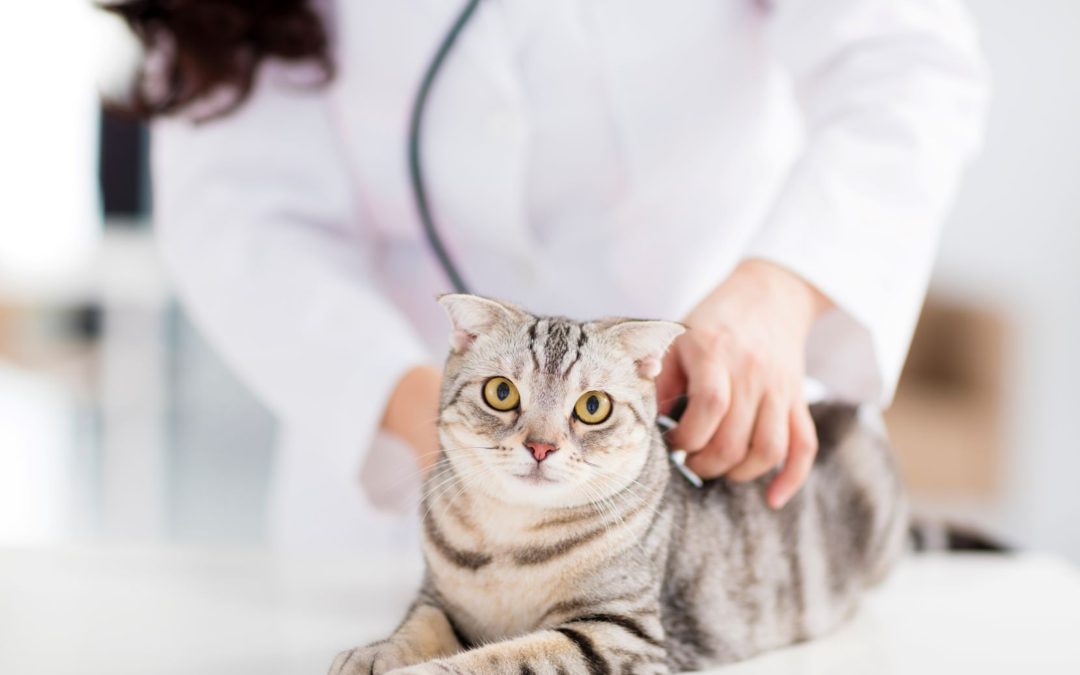Pets age a lot faster than people, therefore their health condition can change faster as well. This makes screening for early disease prevention important. If a disease is detected early, rather than at an advanced stage, your pet may have more options for care and to be able to maintain a higher quality of life.
When Should Testing Begin?
When pets reach adulthood around 1 year of age, we want to start running tests (checking bloodwork and urine) for signs of organ disease, chronic conditions, and heartworm and tick-borne diseases. We may also recommend breed-specific screening if your pet is at risk for certain conditions or early disease onset.
Regular testing of pets helps us identify any hidden health conditions that need to be treated or monitored.

What Diseases Are Vets Looking For?
Although some pets let us know when they aren’t feeling well, many cats and dogs hide signs of disease and other health conditions. As pets age, they also tend to be at greater risk for certain illnesses. That’s why regular veterinary visits and screening tests for early disease are crucial for helping to catch medical concerns as soon as possible.
Some common diseases and conditions that may affect pets as they age include:
- Arthritis—This chronic, painful joint disease affects both dogs and cats, but when it’s diagnosed early, it can be managed more effectively, slowing the disease, minimizing pain, and maximizing pets’ mobility. Arthritis isn’t just an older pet disease, either—it can affect younger pets as well.
- Cancer—Screening tests are essential for helping to catch cancer as early as possible. We have more treatment options than ever before for enhancing quality of life for pets with cancer.
- Diabetes—Drinking and urinating more frequently are classic symptoms of diabetes. It’s important to catch and control this disease early.
- Heart disease—Older pets are prone to developing heart problems, and high blood pressure (hypertension) is also common in these pets. A special diet and medications can help us manage heart disease and keep senior pets enjoying life.
- Hyperthyroidism/Hypothyroidism—These thyroid problems affect dogs and cats differently. Older cats tend to have hyperthyroidism, which speeds up their metabolism, making it hard for them to keep weight on, despite being hungry and eating a lot. Older dogs, on the other hand, tend to have hypothyroidism, which slows down their metabolism and makes them gain weight. Dogs with this condition also tend to be tired and have hair loss and skin problems. We have options that can help these pets, but the earlier we catch the problem, the better. Untreated, these thyroid issues can cause other serious diseases.
- Kidney disease/urinary tract disease—Drinking and urinating more can also be signs of kidney trouble, but these symptoms aren’t always obvious, and kidney disease isn’t curable. However, if the disease is diagnosed early, your Jacksonville veterinarian can recommend a special diet to help slow the disease, as well as other management options to help pets feel better.
- Liver disease—Depending on the type of liver disease, pets may only have vague symptoms or not show any obvious signs until the disease is advanced, so early detection and treatment are crucial. Besides medications, we may also prescribe a special diet to help manage liver disease in some pets.
When a disease is detected early, pets may have more options for care, and the ability to maintain a higher quality of life.
Why Does Testing for Early Disease in Pets Matter?
Routine lab work, including blood and urine tests, can help us determine whether your pet has any diseases we need to treat. And early detection means we can start treating your pet sooner, rather than waiting until a disease has advanced and may be harder to manage.
Certain diseases show similar signs, so determining the cause of your pet’s symptoms is essential. Testing plays a big role in helping us figure out what’s wrong and how to properly treat your pet.
When Should You Contact Your Jacksonville Veterinarian?
If you notice that your pet is behaving differently or if your pet just seems off, contact us right away. When possible, however, we want to catch anything that isn’t normal early on. We offer low-cost veterinary screening for both adult and senior pets. Call us to schedule your pet’s screening tests today.


